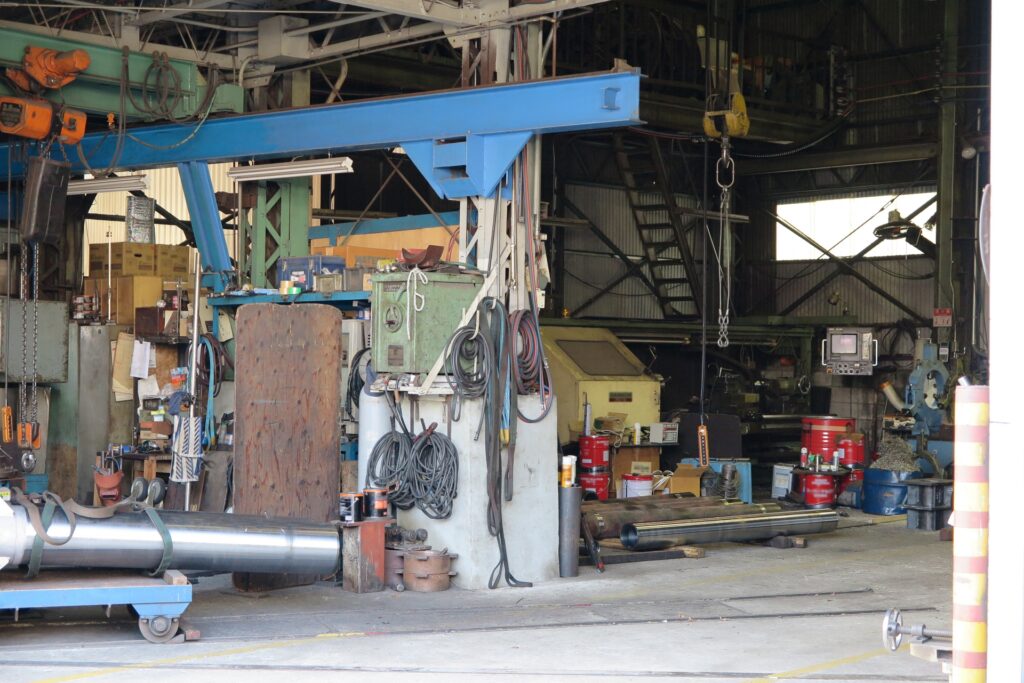Japan is home to some of the world’s most influential industries, from automotive giants like Toyota to cutting-edge technology sectors. As the country faces new challenges such as an aging population and labor shortages, Japan’s industries are innovating with AI, automation, and sustainable practices to maintain their global leadership. This article delves into Japan’s industrial evolution and future prospects, highlighting key sectors like automotive, electronics, and renewable energy.
Overview of Japan’s Major Industries
Japan’s economy is supported by several key industries that have shaped its global reputation. Dominating sectors such as automotive, electronics, robotics, and steel are not only crucial to Japan’s GDP but also to its standing in global markets. These industries have evolved from traditional manufacturing processes into high-tech leaders, incorporating advanced technologies like artificial intelligence (AI) and automation. Each sector contributes significantly to employment, innovation, and Japan’s export-driven economy, with automotive and electronics playing pivotal roles in global supply chains.
Automotive Industry: The Backbone of Japan’s Economy

Japan’s automotive industry is world-renowned, with major players like Toyota, Honda, and Nissan. This sector is central to Japan’s economy, contributing billions in revenue and employing millions of people. Japan leads in vehicle production and is at the forefront of electric vehicle (EV) innovation, reflecting the global shift towards sustainable transportation. Exporting millions of cars annually, Japan’s auto industry is a key driver of its trade surplus. Ongoing developments in EV technology and autonomous vehicles demonstrate Japan’s commitment to maintaining its competitive edge in this space.
Electronics and Robotics: Pioneers in Innovation

Japan has long been a leader in electronics, with companies like Sony, Panasonic, and Hitachi defining innovation in consumer goods, semiconductors, and robotics. Japan’s dominance in robotics has positioned it as a pioneer in industrial automation, revolutionizing factories worldwide. In recent years, robotics has extended to service industries, including healthcare and elderly care, reflecting Japan’s forward-thinking approach in applying technology to societal challenges. Electronics remain a pillar of Japan’s export economy, cementing its role in global supply chains.
Steel and Heavy Industries: Foundations of Japan’s Growth

Historically, Japan’s steel and heavy industries fueled the nation’s post-war economic miracle. Even today, these sectors are essential, providing the raw materials and infrastructure support needed for construction, transportation, and industrial manufacturing. Though global demand has shifted, Japan’s steel industry remains competitive due to its high-quality production methods and innovations in sustainable manufacturing.
Challenges Facing Japan’s Industrial Sector
Despite its strengths, Japan’s industrial sector faces several challenges. Among the most pressing are labor shortages driven by an aging population, increased global competition, and the need for digital transformation to keep pace with global markets. Addressing these issues is critical for maintaining industrial growth and economic stability.
Labor Shortages and Demographic Changes
Japan’s aging population is creating a significant labor gap, affecting productivity across industries. With fewer younger workers entering the workforce, companies are turning to solutions like automation and AI to mitigate the impact. Japan’s immigration policies and potential reforms are also being explored to offset workforce shortages. However, these measures will need to balance social and economic needs.
Global Competition and Market Pressures
Japan faces growing competition from neighboring countries like China and South Korea, particularly in manufacturing and technology. These nations are rapidly catching up in sectors such as consumer electronics, automotive, and heavy industries. To remain competitive, Japan is focusing on innovation, particularly in areas like green energy and next-generation robotics, which can help differentiate it in the global market.
Innovation and Technology: The Role of AI and Automation
In response to both internal challenges and external pressures, Japan is doubling down on AI and automation. These technologies are being integrated across multiple industries, from manufacturing to healthcare, to increase productivity and maintain global leadership.
AI in Manufacturing: Transforming Production Lines
Japan is a leader in deploying AI and robotics to streamline manufacturing processes. By integrating AI, companies can reduce costs, increase efficiency, and improve quality control. This transformation is crucial for offsetting labor shortages and maintaining competitive production rates.
Automation in the Service Industry

Beyond manufacturing, automation is revolutionizing Japan’s service industry, particularly in areas like retail, healthcare, and logistics. Automated systems, such as self-checkout machines and robotic caregivers, are addressing labor shortages while meeting growing consumer demands for convenience and efficiency.
Sustainability and the Future of Green Energy in Japan
Japan is transitioning toward green energy as part of its long-term strategy to achieve carbon neutrality by 2050. This shift is reshaping traditional industries and fostering innovation in renewable energy sources such as solar, wind, and hydrogen.
Carbon Neutrality Initiatives
Japan’s carbon neutrality goals are ambitious, involving comprehensive policies aimed at reducing greenhouse gas emissions. Key strategies include promoting electric vehicles, investing in renewable energy, and developing sustainable industrial practices that minimize environmental impact.
Sustainable Manufacturing Practices
Japan’s focus on sustainable manufacturing is evident in its efforts to improve energy efficiency and reduce waste. Many industries are adopting eco-friendly materials and processes, positioning Japan as a global leader in sustainable production methods.
The Role of SMEs in Japan’s Industrial Ecosystem
Small and Medium Enterprises (SMEs) play a vital role in Japan’s economy, contributing significantly to innovation and niche markets. In industries like precision manufacturing and advanced materials, SMEs are highly specialized, often supplying key components to larger corporations.
SMEs and Innovation

SMEs in Japan are known for their flexibility and high-quality production, particularly in sectors requiring precision and customization. Their ability to innovate in specialized fields contributes significantly to Japan’s global supply chain.
Challenges Faced by SMEs
Despite their strengths, Japanese SMEs face challenges, including limited access to capital and talent shortages. These issues are compounded by competition from larger domestic and international firms. Addressing these challenges through government support and collaborative innovation is key to ensuring their continued contribution to Japan’s industrial landscape.











